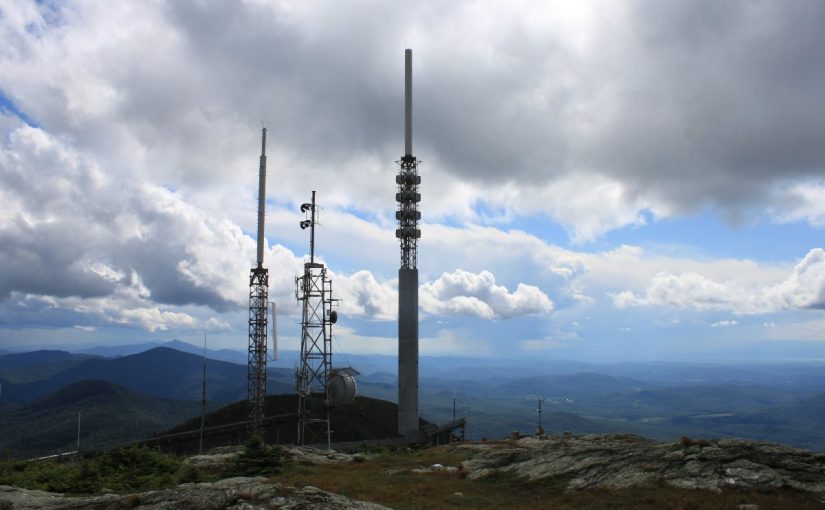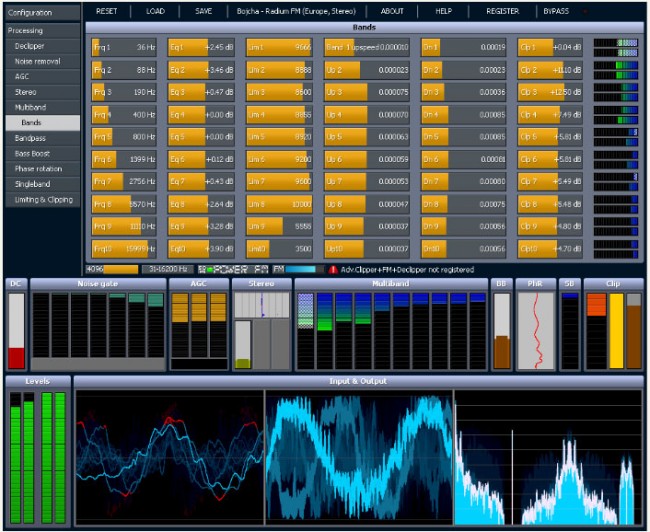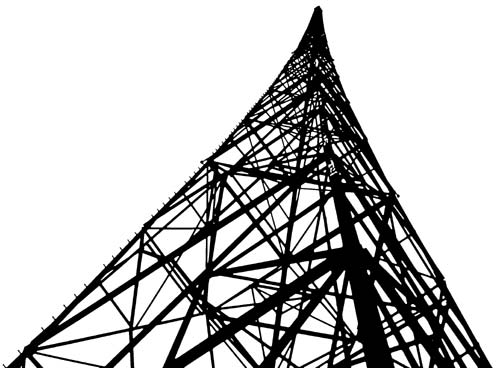Nature abhors a vacuum.
There has been a lot of hand-wringing and ink spilled recently on the titled subject. The problem seems to be particularly acute when it comes to RF knowledge. I agree with those concerned that there are very few new (read also as young) people entering the field. There are a number of reasons for this; competing technical fields that pay more and are generally easier to work in, the very broad knowledge base required for Broadcast Engineering, and the lack of awareness by major stakeholders.
It seems obvious that for as long as there are radio and television stations, there will need to be those people who install and maintain the transmission systems. The question is, how to attract new people into that field? In order to answer that question, a follow on question would be, what exactly does a Broadcast Engineer do?
This can be broken down into three very broad areas:
- Conversion of the art into electronic form. In other words, capturing sound and video with cameras and microphones. What are the various analog and digital formats, how are those signals routed, edited, stored, retrieved, and transmitted. What are the various bit reduction (e.g. compression) formats. How these live streams and stored files are mixed to generate the final program material.
- Transmission of the program material. Meaning moving the program to the transmitter site and broadcasting it for public reception. This would involve knowledge of Studio To Transmitter (STL) systems which can vary greatly but often include satellite distribution, public internet, fiber, RF wireless microwave systems, etc. The next step is the actual transmitter, filters, combiners, transmission line, and antenna. Knowledge of all regulatory (in the US, FCC) obligations including EAS, Tower lighting and marking, transmitter operations; power level, interference, etc.
- Physical plant systems. Broadly speaking; HVAC, electrical power, emergency generators, towers, fire suppression, etc.
These work categories can be further broken down into three functions; installation, maintenance, and replacement.
Since I have been more involved in the management side of things lately, I find that most of my problems are people problems. What may be a surprise to some is, Broadcast Engineers are people. What may be even more shocking; people have interests. Those interests are the reason why they chose to work in a technical field. Forcing the IT guy to go to the transmitter site to see why the generator won’t start is not a good use of resources.
Looking at the very large skill set that a competent Broadcast Engineer needs to function in a modern broadcast facility, the first part of the answer becomes obvious; more specialization. Break down these broad categories into separate skill sets. Since it seems that many things are headed toward the IP domain, Broadcast IT should become a thing separate from office IT. While the two are similar, Broadcast IT requires more knowledge of physical wiring, switch architecture, VLANs, subnets, IP streaming protocols, audio formats, video formats, transport streams, etc.
RF infrastructure has its own set of rules, including personal safety requirements. A solid electronics/engineering background is required to understand how transmitters work, what various failure modes are, and what can cause them.
Physical plant work most often can be contracted out to various vendors. However, that work needs to be supervised by a competent station representative.
The next item is the thing that nobody wants to talk about; the importance of work/life balance. This means not utilizing a broadcast engineer as a piece of equipment to be worn out and discarded when the performance level drops below expectations. I know several broadcast engineers who have left the industry because of this. Worse still, there are those who have died of heart attacks or committed suicide. Work/life balance also includes proper compensation, so those people can afford to pay for essentials, have a reliable vehicle, healthcare, etc.
Of course, many smaller operators cannot afford to hire an RF specialist and a Broadcast IT specialist plus pay contractors to do physical plant maintenance. This is where contracting can fill in the vacuum. If contracting becomes the new normal, then how does the next generation of Broadcast Engineers get trained? Broadcast transmitter manufacturers have some training courses available as does the SBE. However, there is no substitute for hands-on experience. While many Broadcast Engineering evolutions are similar, no two situations are the same, and thinking on your feet is a job requirement. How are new people coming into the field get the necessary experience? The situation is not untenable, however, it will require some creative thought.







There are so many points, and you hit many of them on the head.
To add to this are two other things.
Bringing in Engineers who don’t have actual broadcast experience is difficult, as I have found, engineers who have no experience, don’t understand the “people politics” that surrounds working in a broadcast environment. It also doesn’t prepare them for the “you’re always on, even when you’re not” state that comes from engineer. Wanted to have a nice relaxing Christmas Eve with family? Surprise, National Grid had other plans for you. It’s not much of a choice either. Sure, even contractors are allowed time off. (And yes, despite working both FT in TV, and PT at a college, I do contract work, so I know), that in some fashion, you need to be able to answer a call.
The trick is to learn how to not stress it. Just like with the political stuff, learn how to not stress that either. The primary issue is, the jobs that could get potential engineers into a place (Master Control, DJing.) are drying out (or being farmed out) and the opportunity to get in and get your feet wet is disappearing fast.
The other thing I see, that needs to change, is the “old engineer” mentality of “I am NOT showing you this, you need to figure it out on your own”. That doesn’t make anything better for anyone. The clients, the new engineers in training, the old engineers. It turns what could be a good learning situation into a curmudgeonly old fart not wanting to help. “Job Security” is bullshit, it was then, it is now, it will be down the road. And an Engineer that teaches, also learns, but carries on that mentality of “wanting to teach” to the next generation.
The one thing that I did not articulate very well; as a business owner, our clients are always looking for ways to save money. For a contract engineer, this means reducing hours or attempting to reduce the hourly rate. This puts a squeeze on time just to do the basic maintenance items. Taking additional time to train a new broadcast engineer is something that most clients will not be willing to pay for. In fact, a typical response to that is “that is your problem, not mine.” It puts a real limit on the ability to train up a new employee to the degree necessary for remote transmitter site work. There are a lot of non-technical variables to these sites such as site access, snow plowing, trees down, flooded access roads, encounters with wild life, encounters with other property owners or local law enforcement, etc.
Training of newbies has become a crisis in almost every technical field nowadays, from my observations at least. In a way, the unions have that part right, a clear progression from apprentice to journeyman to master, under the guidance of a higher grade. The cost of unions in other ways is enormous, however.
With the WuFlu crap, I have been watching more Youtube technical videos, and I found this fellow…
https://www.youtube.com/watch?v=CMZ8_mUP0WI
It’s a site called HVACR Videos, and he makes them mostly as a way to train his new techs in a way they can use, and with real-world service call experiences. He carries/wears a GoPro, and records HVACR service calls. The editing, and voice-overs at the beginning and end take time, but if you want to show what field work is like, then show field work I say!
I have not seen any for broadcast engineering, but this looks like a partial gap-filler, or a supplement to get a new hire started, for traditional training flows.
This! I’m not a broadcast engineer, but I also work in a niche job. Every point you so clearly articulate works in other fields, including mine. Especially the “need to specialize” part. Going to point a lot of people to this article with the caveat, “We’re not broadcast engineers, but this is us, too.”
Great one, Paul!
P.S. End of first paragraph. Should it be “stake holder”?
What’s wrong with holding a medium-rare steak? MMMMMmmmmm….steak. 🙂
The work/life balance is really a key. I’ve got a really diverse skillset that is a good match for broadcasting jobs and I’ve even got a friend that works in NYC who offered to get me in. They’re having a hard time finding people too, but it’s no surprise.
Every time you want to be home; nights, storms, holidays, etc – he’s working. Can’t go in to work? Better beg someone to fill in. Next shift doesn’t show? Be prepared to work a double to cover for them. Every day is staffed at the minimum level needed for function. And there is the cloud of corporate doom that hangs high as the station he works for has been sold and in corporate limbo between megaconglomerates. Every time things get squeezed harder by increasingly ignorant management that sees nothing but cost reduction as a means to profit. He’s had to work in-person through the pandemic with an even higher workload trying to remote everything all at once. It’s just a train of stress and anxiety, constantly trying to do more with less.
A local radio station here even let go their part time personalities during the pandemic and made their full timers pick up the shows. How much do you think they are going to spend on engineering?
Could I make more money in broadcast? Absolutely. But I need to have a reason to live besides going to work. I want to go to bed at night and turn my phone off. At my current job I can call out on all but a few critical days without much issue. I get vacation time and I’m encouraged to use it. A job with the requirement of trading off my entire existence and wrecking my body is a hard sell. Even the fire department has a better on-call structure, with a rotation of time on periods balanced with time off periods.
We have a serious problem that technical and mechanical skill jobs are so poorly regarded and paid and with the lack of benefits for contract/gig workers, who are increasingly being used to fill what would have been full time with benefits positions. Everything stands on the backs of the people who are doing the on the ground engineering and technical work, but respect and resources is sorely lacking.
The field seems to be moving to a different model, where a group of road warriers remove and install equipment, shipping it back to a repair depot somewhere to do the actual work. The days where you have to be a jack of all trades, able to repair everything on site are just about gone. Most of those positions are no longer as employees of the station. Some of the larger groups retain on staff engineering, but even those are starting to show them the door. In my opinion it’s a shrinking field. The question maybe then is not where will tomorrow’s engineers come from, but where will they find work?
Chuck, yes there is one major group going that way with so called “tiger teams.” Other major groups tend to have a regional director of engineering who runs around between markets doing the work of 5-6 people. Eventually, those type operations always need additional support, usually in the form of high level expertise. Last I checked, the big three account for 1,605 licensed stations (not counting translators). If you want to count EFM, than number goes to about 2,250. According to the FCC, there are 11,306 licensed AM and FM commercial stations (15,478 if educational FM’s are counted), not counting translators. Clearly, the vast number of stations are still owned by medium to small groups or individual owners. There will be some need for broadcast engineers for as long as those owner’s desire their stations to stay on the air.
I could see you writing a practical broadcast engineering text that covers initial troubleshooting to save folks like you from having to roll out of the rack at zero-dark thirty on a winter’s night to re-boot a computer. Someone local with a guide like that could cover a fair percentage of call-outs…
People problems is right. Having worked at 7 radio stations I couldn’t help but notice a consistent theme: the antipathy engineers seem to have for programming staff.
Station owners and managers can’t force employees to like each other, but they should be sensitive to interpersonal friction and demand courtesy and cooperation.